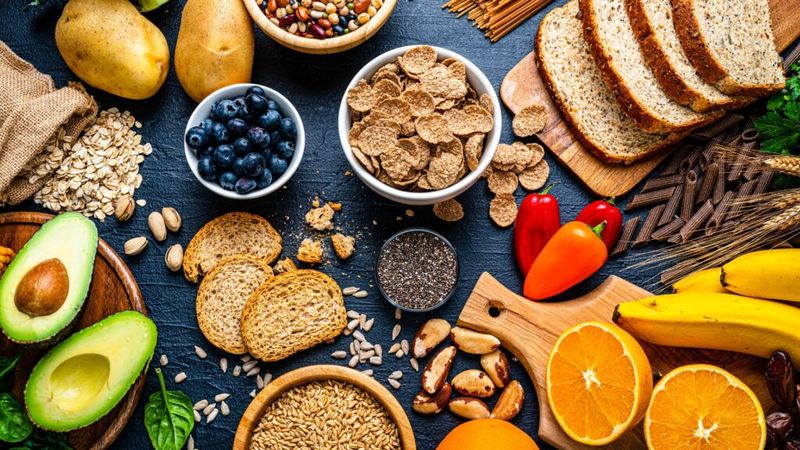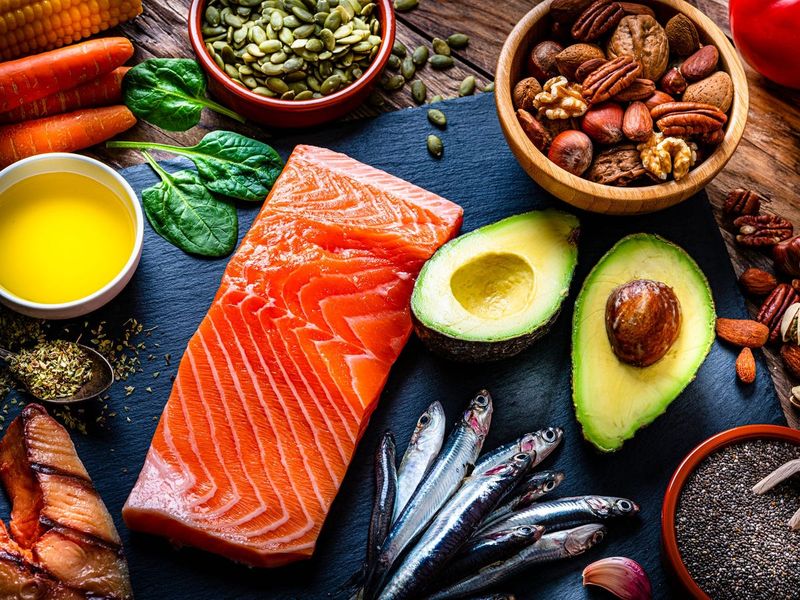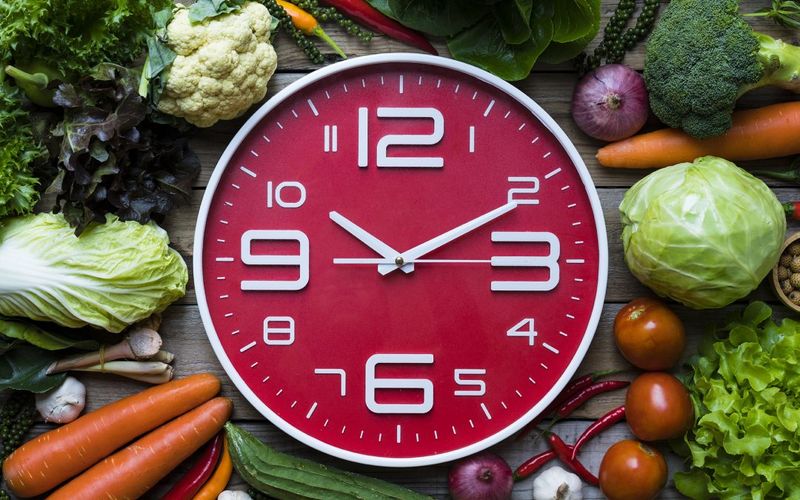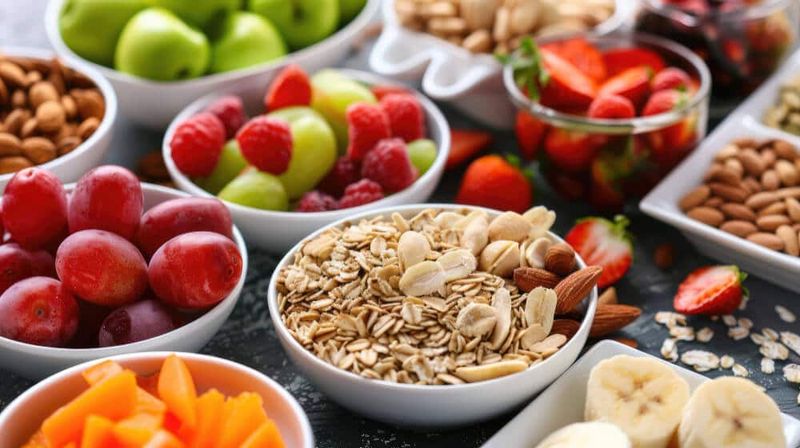As we age, our body’s nutritional needs evolve, making it essential to reevaluate our eating habits. Research shows that certain dietary adjustments can significantly impact our health and well-being after the age of 50. From adjusting portion sizes to incorporating more nutrient-dense foods, these changes can contribute to a longer, healthier life. This article explores 12 essential eating habits to reconsider to maintain vitality and prevent age-related health issues. Understanding these habits can be a transformative step in promoting better health and longevity.
Mindful Eating

Ever notice how the simplest meals can become the most satisfying when truly savored? Mindful eating encourages us to slow down and enjoy each bite. Research suggests that paying attention to the sensory experience of eating can help reduce overeating. The key lies in focusing on flavors and textures, making meals more pleasurable and reducing stress. By practicing mindful eating, you might find yourself more in tune with hunger cues, helping to maintain a healthy weight. Why not try putting down the fork between bites?
Portion Control

As our metabolism slows with age, portion control becomes vital. Did you know that eating smaller meals more frequently can boost energy levels? Controlling portions helps prevent weight gain and maintains metabolic efficiency. A plate divided into balanced sections can guide healthy eating. Utilizing smaller plates may trick the mind into feeling satisfied with less. It’s not about deprivation but rather choosing quality over quantity. Emphasizing nutrient-rich foods in appropriate amounts ensures the body receives essential vitamins and minerals without excess calories.
Hydration Focus

Water plays a crucial role in our health, yet many older adults don’t drink enough. Did you know that even mild dehydration can lead to fatigue and confusion? Staying hydrated aids digestion, skin health, and cognitive function. Keeping a water bottle nearby acts as a reminder to sip throughout the day. Integrating hydrating foods like cucumbers and oranges into the diet also helps. Consider setting a daily water intake goal. Your body will thank you for the extra fluid support, keeping you energized and clear-headed.
Increased Fiber Intake

Fiber, the unsung hero of a balanced diet, becomes even more important as we age. It supports digestive health, regulates blood sugar, and can reduce cholesterol levels. Seeking sources like whole grains, fruits, and vegetables can enhance overall well-being. Did you know that fiber can help maintain a healthy weight by promoting satiety? Gradually increasing fiber intake ensures the digestive system adapts smoothly. Focusing on a colorful array of plant-based foods is a delightful way to enrich meals with fiber.
Balanced Macronutrients

Striking the right balance between proteins, fats, and carbohydrates is key to aging well. A varied diet supports muscle health, energy levels, and overall vitality. Incorporating lean meats, healthy fats, and whole grains makes meals both nutritious and satisfying. By understanding personal nutritional needs, tailoring meals to suit them becomes easier. Did you know that balanced macronutrients can enhance mood and cognitive function? Ensuring each meal contains the right mix helps the body function optimally.
Reduced Sugar Consumption

Cutting back on sugar can drastically improve health, especially for those over 50. Excess sugar contributes to weight gain, diabetes, and heart issues. Did you know that naturally sweet foods like fruits can satisfy sugar cravings? Reducing processed sugars by reading labels and choosing whole foods makes a significant difference. Gradually decreasing sugar intake can enhance taste sensitivity to natural sugars. Emphasizing natural sweetness redefines your palate and encourages healthier eating habits.
Diverse Protein Sources

Exploring diverse protein sources enriches the diet with essential nutrients. As muscle mass decreases with age, protein becomes crucial in maintaining strength and mobility. Did you know that plant-based proteins can be just as effective as animal sources? Incorporating beans, lentils, fish, and tofu offers variety and balances amino acids. Meal planning with diverse proteins supports heart health and reduces inflammation. By experimenting with different sources, meals become exciting and nutritionally fulfilling.
Omega-3 Fatty Acids

Omega-3 fatty acids offer impressive health benefits, especially for aging adults. They support brain health, reduce inflammation, and can lower the risk of heart disease. Including foods like salmon, walnuts, and flaxseeds nourishes the body with these essential fats. Did you know that omega-3s can also improve mood and mental clarity? By prioritizing these nutrients, you can enhance overall health. Simple swaps, like choosing fish over red meat, can make a substantial difference in nutrition.
Adequate Calcium and Vitamin D

Bone health becomes a focal point after 50, making calcium and vitamin D essential. These nutrients work together to maintain bone density and prevent osteoporosis. Did you know that leafy greens can provide calcium without the need for dairy? Combining them with fortified foods maximizes intake. Vitamin D, often sourced from sunlight, enhances calcium absorption. Prioritizing these nutrients in daily meals ensures stronger bones and reduces fracture risk, supporting a healthy, active lifestyle.
Limiting Processed Foods

Processed foods often contain unhealthy fats, sugars, and preservatives. Limiting these can improve health significantly after 50. Did you know that opting for fresh produce can reduce inflammation and enhance energy levels? Cooking meals from scratch with whole ingredients ensures control over nutritional content. Replacing processed snacks with fruits and nuts offers natural fiber and vitamins. By prioritizing whole foods, you support heart health and weight management, paving the way for vitality and longevity.
Regular Meal Timing

Maintaining regular meal times can positively influence metabolism and energy levels. Skipping meals might lead to overeating later, disrupting blood sugar stability. Did you know that eating at consistent intervals helps the body anticipate energy needs? Planning meals around a schedule supports digestion and nutrient absorption. Establishing regular eating patterns can boost metabolism and minimize hunger pangs. This habit encourages a structured approach to nutrition, enhancing overall well-being and vitality.
Mindful Snacking

Snacking need not sabotage healthy eating habits. Mindful snacking focuses on nutritious choices that align with overall dietary goals. Did you know that choosing snacks rich in protein and fiber can keep hunger at bay? Nuts, yogurt, and fruit make excellent options, providing energy and satisfaction. Planning snacks as part of the daily diet prevents impulsive eating. By being intentional with snack choices, you can support weight management and nutrient intake, turning snacking into a healthful practice.
Leave a comment